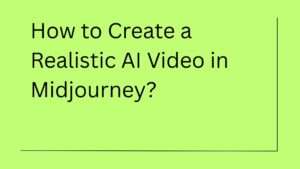As artificial intelligence continues to evolve at a rapid pace, a wide range of tools has emerged, each catering to specific user needs. While ChatGPT has become a household name due to its versatility and wide-reaching capabilities, its alternatives provide unique features and functionalities that make it stand out in particular domains. Whether you’re looking for enhanced research tools, creative assistants, or specialized problem solvers, this article dives deeper into some of the best alternatives to ChatGPT, highlighting their strengths and the specific scenarios where they excel.
Are there Alternatives to ChatGPT Which You Can Try?
ChatGPT has become synonymous with conversational AI, but it’s far from the only option available. From specialized coding assistants to multilingual experts and creative writing partners, a diverse ecosystem of AI chatbots now offers unique capabilities that sometimes surpass OpenAI’s flagship model.
While some alternatives excel in specific domains like academic research or mathematical analysis, others provide more competitive pricing or faster response times. Notable contenders include Claude, with its exceptional reasoning capabilities and extensive context window; Bard, powered by Google’s vast knowledge base; and specialized tools like GitHub Copilot for developers.
Whether you’re seeking more affordable options, require specific features absent in ChatGPT, or simply want to explore different approaches to AI interaction, these alternatives present compelling choices for both personal and professional use.
This guide explores the most promising ChatGPT alternatives, highlighting their unique strengths and ideal use cases.
Top ChatGPT Alternatives at Your Glance
| Category | AI Tool | Key Features & Strengths | Use Case |
| Writing and Research | Claude AI | Advanced conversational abilities, ethical AI, handles large datasets | Researcher summarizes a 200-page scientific manuscript. |
| Perplexity AI | Real-time research, internet browsing, up-to-date information, citation-based output | Consumer compares the latest smartphone models. | |
| Notion AI | AI-powered task organization within the Notion platform, helps with note-taking, brainstorming, project management | Project manager turns meeting notes into action plans. | |
| Voice-Based AI | Whisper | Excellent voice-to-text, multi-language support, handles various accents/dialects | Journalist transcribes overseas interview audio. |
| ElevenLabs | Lifelike voice cloning for text-to-speech | Podcaster creates different voice personas for a fictional series. | |
| Speechify | Natural-sounding text-to-speech for consuming written content on the go | Student listens to textbooks while commuting. | |
| Image Generation and Analysis | MidJourney | AI-generated artwork from text prompts, high-quality visuals | Designer creates mood board concepts for a branding project. |
| DeepArt | Neural network-based artistic styles applied to photos | Bakery transforms photos into artistic marketing images. | |
| Runway ML | Video/image editing tools, object removal, background replacement, text-to-video | YouTuber removes distractions from travel vlog footage. | |
| Music Generation | Suno AI | Music composition across genres, suitable for quick background music creation | Independent musician composes an instrumental track for a single. |
| AIVA | Orchestral music composition, ideal for filmmakers, game developers, and advertisers | Filmmaker creates an orchestral soundtrack for a documentary. | |
| Coding and Problem Solving | GitHub Copilot | Real-time code suggestions, auto-completions, debugging help | Developer receives Python code suggestions and debugging help. |
| Tabnine | Predictive coding, team collaboration, code consistency across large teams | Engineering team maintains consistent coding standards across a project. | |
| Open-Source and Customizable AI | Rasa | Open-source platform for building customizable AI chatbots | Healthcare provider builds a chatbot for scheduling and triaging. |
| Hugging Face Transformers | Open-source AI models for tasks like text classification, translation, summarization, community-driven development | Tech startup uses a transformer model for building a customer service chatbot. |
15 Best ChatGPT Alternatives Worth Trying
Writing and Research Alternatives
1. Claude AI by Anthropic
Claude, developed by Anthropic, is one of the most promising alternatives to ChatGPT. Known for its advanced conversational abilities and a focus on safe and ethical AI, Claude stands out when it comes to handling large amounts of data. It’s particularly adept at processing long and complex documents with a high level of accuracy. For tasks that require a deep understanding of intricate data, such as summarizing legal documents or creating detailed academic outlines, Claude is an excellent choice.
Example Use Case: A researcher working on a large academic paper inputs a 200-page scientific manuscript into Claude and requests a summary of the methodologies and key findings. Claude swiftly delivers a detailed, coherent synopsis, saving the researcher countless hours of manual reading and note-taking.
2. Perplexity AI
For those who need real-time research capabilities, Perplexity AI is a strong contender. Unlike many other AI tools, Perplexity can actively browse the internet, providing up-to-date insights on current events or product comparisons. Its ability to pull information from multiple sources and present it in a structured format, often complete with citations, is a valuable asset for those needing quick, reliable data for decision-making or fact-checking.
Example Use Case: A consumer researching the latest smartphone releases turns to Perplexity AI for a side-by-side comparison of the most recent models. In moments, Perplexity generates a concise yet thorough comparison, complete with links to external sources for further reading.
3. Notion AI
Notion, a popular all-in-one workspace, integrates its own AI tool to help users streamline their daily tasks. Whether you need help with note-taking, brainstorming, or organizing a project, Notion AI can generate relevant content tailored to your specific requirements. Its integration with Notion’s powerful organizational features makes it an excellent choice for anyone looking to boost their productivity in managing large-scale projects.
Example Use Case: A project manager uses Notion AI to convert raw meeting notes into a detailed action plan, ensuring that no important discussion points are overlooked and that every task is well-defined and assigned to the appropriate team member.
Voice-Based AI
4. Whisper by OpenAI
Whisper, another creation by OpenAI, excels in transcription tasks with its remarkable voice-to-text capabilities. Its strength lies in its multi-language support, making it highly versatile in global environments, as well as its ability to handle various accents and dialects. Whether you’re transcribing interviews, lectures, or podcasts, Whisper’s accuracy and efficiency are unmatched.
Example Use Case: A journalist recording interviews during an overseas assignment uploads the audio to Whisper, receiving highly accurate transcripts in real time, which can then be edited for clarity and published without delay.
5. ElevenLabs
ElevenLabs revolutionizes text-to-speech technology with its incredibly lifelike voice cloning abilities. This advanced tool allows users to create custom voices for content, from reading articles to generating unique audio personas. ElevenLabs is particularly valuable for content creators looking to bring characters or narrators to life with lifelike voices, making it an ideal tool for podcast creators, audiobooks, and digital assistants.
Example Use Case: A podcaster uses ElevenLabs to create different voice personas for a fictional series, giving each character a distinct and realistic voice that enhances the storytelling experience.
6. Speechify
For users who prefer auditory content over reading, Speechify offers an excellent text-to-speech solution. With natural-sounding voices and the ability to read various formats (such as PDFs and articles), Speechify allows users to consume written content on the go, making it ideal for students, busy professionals, and anyone who prefers listening to reading.
Example Use Case: A student uploads their course textbook to Speechify and listens to it while commuting, making efficient use of their time and reinforcing their learning as they move between locations.
Image Generation and Analysis
7. MidJourney
MidJourney has become one of the leading tools for AI-generated art. By converting text prompts into visually stunning images, it provides immense creative freedom for designers, artists, and content creators. Its ability to generate intricate, high-quality artwork makes it perfect for use in both personal and professional creative projects.
Example Use Case: A graphic designer uses MidJourney to generate a variety of mood board concepts for a client’s branding project. After refining the results in design software, the designer presents a polished, cohesive visual identity that perfectly matches the client’s vision.
8. DeepArt
DeepArt uses advanced neural networks to apply artistic styles to photos, transforming ordinary images into works of art. From turning family photos into Van Gogh-inspired masterpieces to creating stylized marketing visuals, DeepArt is a powerful tool for those seeking to infuse creativity into their images.
Example Use Case: A local bakery creates an eye-catching social media campaign by transforming everyday photos of their pastries into unique, artistic images that catch the attention of potential customers.
9. Runway ML
Runway ML is a versatile AI tool designed for creators involved in video and image editing. With capabilities such as object removal, background replacement, and even text-to-video generation, Runway ML is a favorite among content creators who need to streamline their editing process and push the boundaries of what’s possible with AI-generated media.
Example Use Case: A YouTuber editing a travel vlog uses Runway ML to quickly remove unwanted distractions from the background of their footage, significantly reducing editing time and improving the overall quality of the video.
Music Generation
10. Suno AI
Suno AI is an innovative AI music composition tool designed for musicians and music producers. It provides the ability to generate tracks in a variety of genres, making it perfect for anyone who wants to experiment with new ideas or quickly create background music for projects. Its intuitive interface and collaborative features have made it popular with both seasoned musicians and newcomers to music production.
Example Use Case: An independent musician uses Suno AI to compose a new instrumental track for a single, adjusting the genre and tempo to suit their unique style while experimenting with new sounds.
11. AIVA
AIVA (Artificial Intelligence Virtual Artist) is a groundbreaking music composition tool known for its ability to generate complex, orchestral scores. It is particularly useful for filmmakers, game developers, and advertisers who need original, high-quality background music but lack the resources for a live orchestra. AIVA’s compositions are often used in movies, video games, and commercials.
Example Use Case: A filmmaker creating a documentary uses AIVA to generate an orchestral soundtrack, saving time and money on traditional music production while still achieving a rich, cinematic sound.
Coding and Problem Solving
12. GitHub Copilot
GitHub Copilot, powered by OpenAI’s Codex model, has become an indispensable tool for developers. It acts as an intelligent coding assistant, offering real-time code suggestions, auto-completions, and even debugging assistance. By integrating seamlessly into popular IDEs like Visual Studio Code, GitHub Copilot helps developers write clean, efficient code faster.
Example Use Case: A developer working on a Python project uses GitHub Copilot to automatically suggest code snippets and functions based on the context, significantly reducing the time spent writing and debugging complex code.
13. Tabnine
Tabnine specializes in team collaboration, providing predictive coding assistance and ensuring code consistency across large development teams. Its AI-driven suggestions help maintain high-quality standards across multiple code repositories, making it a great choice for projects with multiple contributors.
Example Use Case: A team of engineers uses Tabnine to maintain consistent coding standards across a large-scale software project, improving collaboration and ensuring that all contributors follow the same best practices.
Open-Source and Customizable AI
14. Rasa
Rasa is an open-source platform that enables developers to build highly customizable conversational AI systems. Perfect for businesses or developers seeking to create tailored chatbots for specific industries or use cases, Rasa provides full flexibility, allowing users to design bots that meet their unique needs.
Example Use Case: A healthcare provider develops a custom chatbot using Rasa to help patients schedule appointments and triage symptoms, improving efficiency and reducing administrative overhead.
15. Hugging Face Transformers
Hugging Face is a leading provider of open-source AI models and offers an extensive library for developers to fine-tune tools for tasks like text classification, translation, and summarization. With an active community and easy access to powerful pre-trained models, Hugging Face is an essential resource for those looking to leverage state-of-the-art natural language processing capabilities.
Example Use Case: A tech startup uses a Hugging Face transformer model to build a customer service chatbot capable of answering frequently asked questions with a high degree of accuracy, significantly reducing the workload of their support team.
Exploring Alternatives – Beyond ChatGPT
As AI technology continues to advance, a diverse range of tools is emerging to meet the specific needs of users. These alternatives to ChatGPT represent the growing breadth of specialized AI solutions, each offering distinct features and capabilities. Whether you’re in need of a powerful image generator, a voice assistant, a music composer, or a coding companion, the vast AI ecosystem ensures that there’s a tool suited to almost every purpose.
By embracing these alternatives, you can tap into the full potential of AI and harness its strengths for a wide array of tasks. Each tool has been designed with a unique use case in mind, which means that, depending on your needs—whether professional, creative, or personal—you can easily find an AI solution that fits your workflow.
For businesses, creative professionals, and tech enthusiasts alike, it’s clear that the AI landscape is not just dominated by ChatGPT. These alternatives are helping shape a future where AI can be finely tuned to specific industries and tasks, offering even more powerful and specialized assistance than ever before.
Conclusion
While ChatGPT remains a powerful and versatile tool in the realm of AI, its alternatives offer unique and specialized features that cater to a wider range of needs. Whether it’s for professional tasks, creative projects, or personal productivity, the AI ecosystem has grown to provide tools that meet diverse user demands. From advanced conversational AIs and voice assistants to image generation, music composition, and coding support, these alternatives provide distinct strengths that empower users to achieve more.
Exploring these options can help you find the perfect fit for your specific use case. By understanding the strengths and limitations of each tool, you can unlock new possibilities, stay ahead in leveraging AI technology, and make more informed decisions about the tools you use for work, creativity, and beyond. As AI continues to evolve, embracing the innovations offered by these alternatives will help you navigate the rapidly changing landscape and maximize your productivity.






1 thought on “Best ChatGPT Alternatives You Should Give a Try (Free & Paid)”
I have read many posts suggesting the chatgpt alternative that go into no detail and only mention vague topics. But this one is a sure version. Thanks a lot.